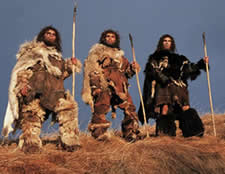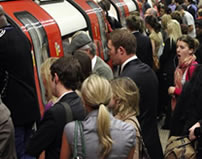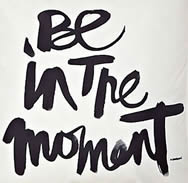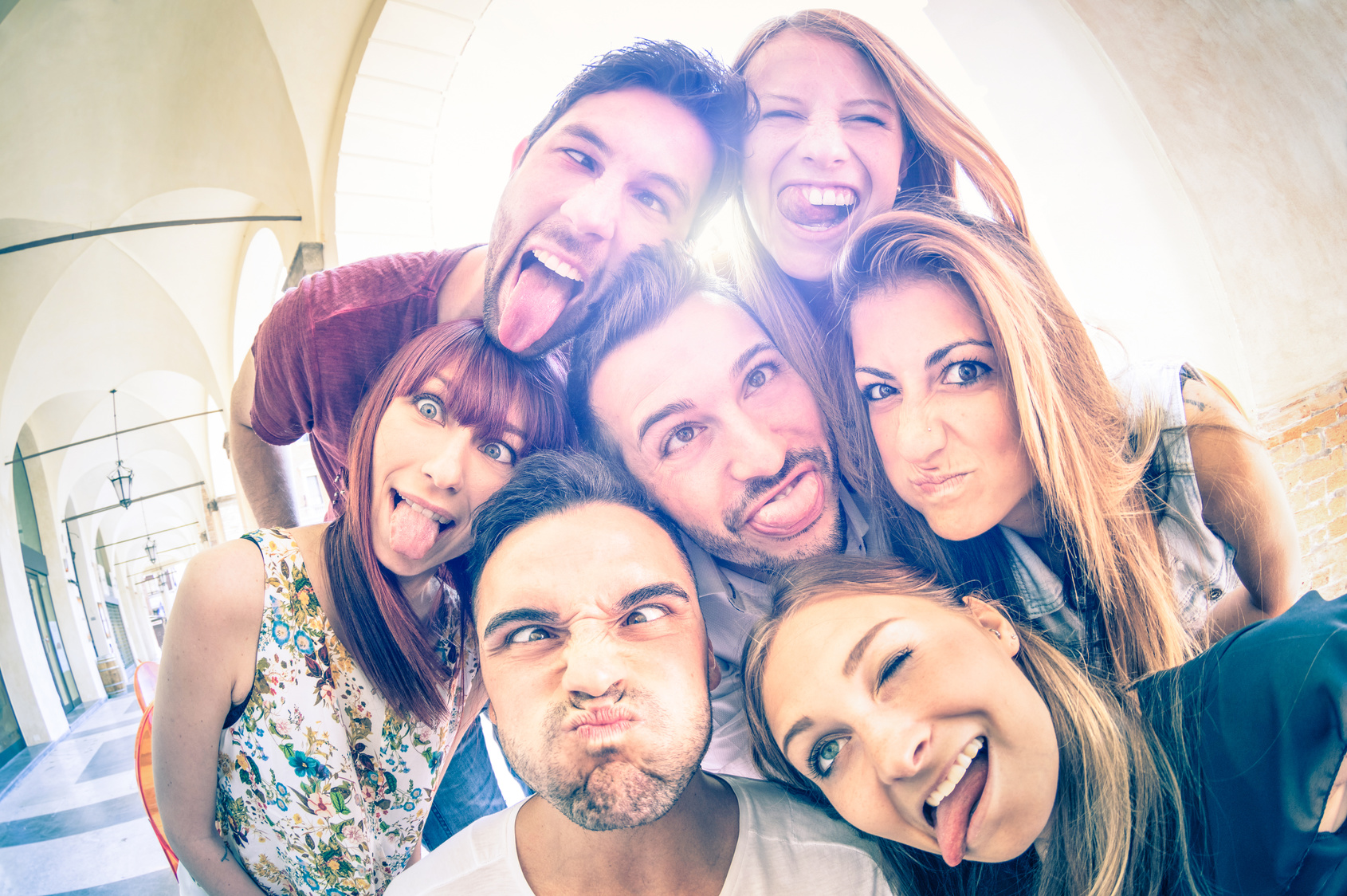Most people in the world these days are living in cities, some upwards of 30 million individuals as in the case of Tokyo, Japan. Chances are you are in a city right now, as this type of living has become the prominent choice for those of us on Earth, especially in developed countries.
That is not to say that there aren’t many other ways of existing in our world, but for now this seems to be the structure that we adhere to.
Tribal Times
 In tribal times we lived at one with nature surrounded by trees, plants, and animals within a close-knit community where everyone was very familiar with everybody else.
In tribal times we lived at one with nature surrounded by trees, plants, and animals within a close-knit community where everyone was very familiar with everybody else.
Now, we are still surrounded by aspects of nature, but it is the people that mainly represent the living energy around us in daily life.
One imperfection that I have become aware of within this social scenario has to do with how humans now see and treat each other.
Interpersonal relationships are complex. They have always been complex. With our growing cultural sophistication they are becoming ever more complex with each passing decade.
In fact we still have our modern day “tribes” both online and offline. Human beings have the same emotional constitution in our modern era than they have had throughout history.
It is merely technology that has advanced. Human nature has pretty much stayed teh same.
Now We Suit Up
O.K., you are surrounded by people in suits and business attire rushing to get to their jobs.
 There are so many faces that admittedly if you tried to take the time to connect with all of them you would either go crazy or be completely drained of all your available mental energies.
There are so many faces that admittedly if you tried to take the time to connect with all of them you would either go crazy or be completely drained of all your available mental energies.
However, we have reacted to this situation in quite a questionable manner.
We have begun to treat each other like we treat our livestock, (also a questionable relationship) as if we are just a mass of faceless, nameless bodies.
In many moments of our modern technological lifestyle we are now being faced with the prospect of talking to machines on phones, being referred to as a customer number rather than our given names, and having conversations with each other that are totally devoid of all real meaning and caring.
Everyday People
Take for instance the last time you bought groceries at the supermarket. You stand in line, a sheep being let out to pasture.
Finally it is your turn.
 You stack up all your food (energy source) on the conveyor belt and the checkout clerk ‘beeps’ all the items with their magical laser that will tell how many energy credits (money) you are to trade.
You stack up all your food (energy source) on the conveyor belt and the checkout clerk ‘beeps’ all the items with their magical laser that will tell how many energy credits (money) you are to trade.
Now ask yourself honestly, how often do you speak to the cashier? Not just, “Hello, how are you?” to be polite, but really speak to them as fellow human beings, fellow spirits with dreams and loves like your own.
How often do you see these people as equals, as creatures of the same form as yourself, made up of exactly the same light energy molecules?
How often do you realize that they is a person that deserves respect and attention as much as any other family member or friend that relates to you in any moment of your life?
Why have we lost this act of recognition for our fellow beings, our human family?
You’ll probably reply that we are too busy to think about some ‘stranger’ that seems to have little connection to our goals in daily life.
The checkout line for you is a place to contemplate the future, think about tasks that need doing, and find solutions to problems that need taking care of.
Who cares what that person we don’t really ‘know’ thinks of us?
What’s more, people are too busy with their own worries and concerns to really give much thought about others.
When you think another person is judging you for how you look or your behavior you would probably be surprised to learn that they are actually lost in their own thoughts and may not even be aware of your existence at all.
Being Present in the Moment
This brings about another challenge that I don’t wish to talk about too much right now, (maybe next article!) and that is the fact that we are rarely totally conscious in the present moment.
 If we truly understood the significance of every moment and every person we interact with in our lives, we might start to see life as something special and magical-even in everyday situations, and the idea that every moment we have is an opportunity to learn more about the world and ourselves.
If we truly understood the significance of every moment and every person we interact with in our lives, we might start to see life as something special and magical-even in everyday situations, and the idea that every moment we have is an opportunity to learn more about the world and ourselves.
It is time for us to once again realize that every person we come into contact with is another individual, not exactly the same as anyone else in the world.
I’m not saying we should try and talk to each and every soul that comes within our body space.
What I would like to experience is attentiveness by my fellow humans that involves doing the best we can to treat all who we do come into contact with real sincerity.
If we want society to evolve to a state where our systems of interaction cause good feelings instead of dread and frustration at being treated like something of little worth, the time has come to realize we are all human, all together, and each different and special.
Inner change, obviously, starts with you.
But outer change begins within as well. This may seems counterintuitive but it is nether less true.
If you want to see a better world perhaps you should start by seeing the world in a better way. You can only do this by changing yourself.
As the famous teacher Wayne Dyer said, “when you change how you look at things, the things you look at change”. The world is often a reflection of your inner state.
There are a myriad of reasons for this “Mirror” effect. Some of them are psychological in nature while others are metaphysical.
How you view the world truly does affect how the world looks back at you. The world is your mirror.
So instead of trying to change the mirror, you should start with the person looking into the mirror.

